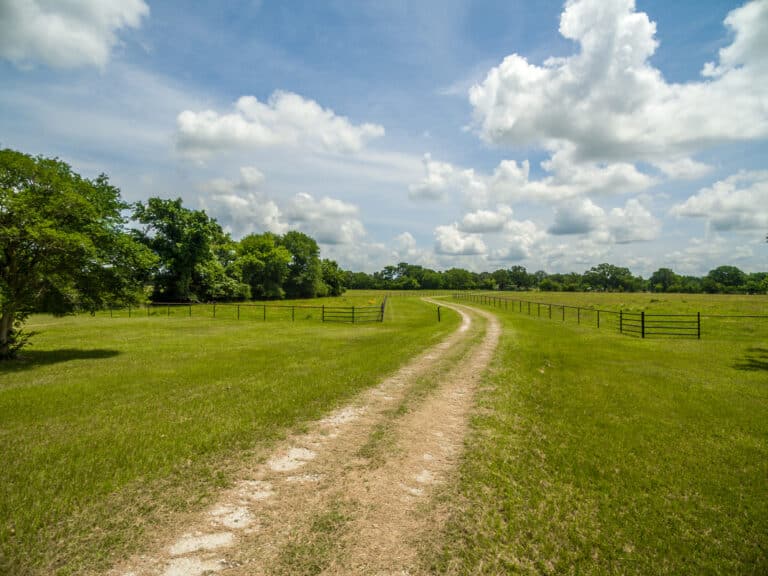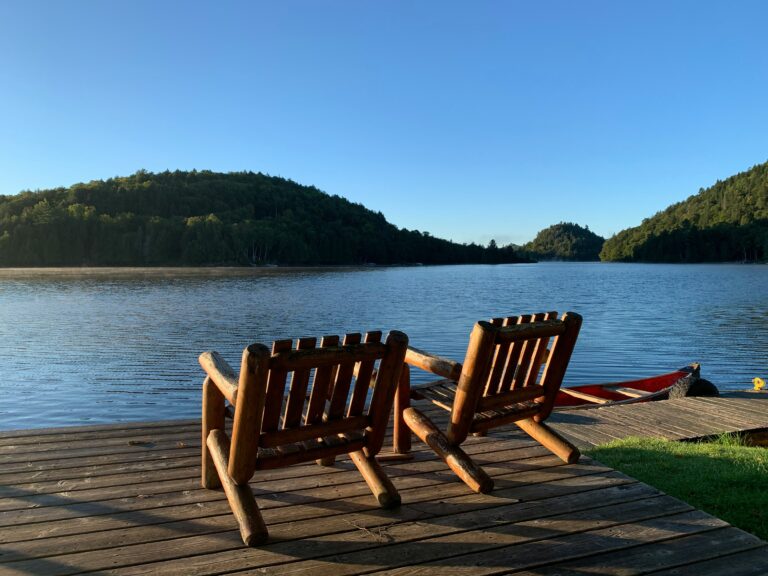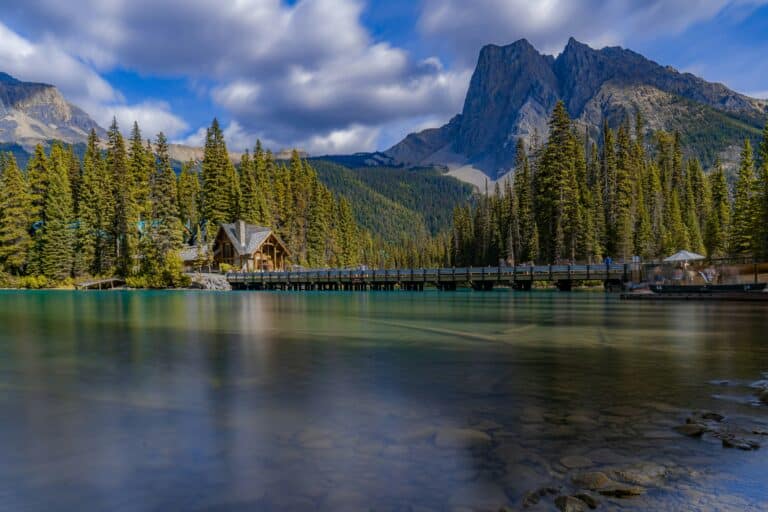Interested in buying property in the Pine Tree State? You’re in the right place. Whether you’re looking for residential land or recreational acreage, there are lots of things to consider when purchasing rural property in this northeast neck of the woods.
In this comprehensive guide, the experts at Land.com are here to help first-time prospective landowners with the ins and outs of buying land in Maine. From the best tactics to the common mistakes to avoid, we’ve got you covered for making the most out of this valuable investment.
Why Buy Land in Maine?
Tucked between the Canadian border and the Atlantic Ocean, Maine is known as an outdoor-lover’s haven. With miles of coastline and forests alike, Maine boasts scenic landscapes and natural beauty at every turn, including acres of white pines that give the state its nickname.
In addition to the greenery in your own backyard, Maine is ideal for landowners who lead an active, outdoorsy lifestyle. Hiking, camping, swimming, biking, kayaking—and more! The market for outdoor recreation also means that Maine is a hotspot for tourist and vacation rentals, with a high potential for investment properties.
Maine offers the opportunity for:
- Residential homes
- Weekend getaways
- Undeveloped plots
- Investment properties
With such a wide variety of land for sale in Maine, you’re sure to find the perfect option for your budget, lifestyle, and goals.
Types of Land Available in Maine
With Maine’s diverse ecosystem and mix of rural and residential areas, there are many types of plots to choose from. Maine land includes:
- Waterfront properties – Maine is known for its rocky and lighthouse-studded coastline, with lots of properties on or near the beach. It’s also one of the best states for buying lakefront land. If you prefer freshwater, you’ll love wooded areas with lakefront or riverfront land.
- Farmland – With over 7,000 farms statewide, Maine farmland totals over 1 million acres. Top agricultural outputs consist of wild blueberries, potatoes, dairy, and apples. A growing market for family and direct-to-consumer farms makes Maine farmland a worthwhile investment.
- Residential plots – Is your goal to buy land and build a family home in Maine? Many land listings feature move-in ready homes, while others are legally zoned for residential construction.
- Hunting land – Landowners in Maine are able to hunt on their private property without a license (except for moose hunting) as long as their land is over 10 acres, serves as their residence, and is used exclusively for agricultural purposes. Without meeting these requirements, Maine landowners can still obtain a variety of hunting permits and licenses.
- Wooded lots – With over 17 million acres of forest land, Maine is approximately 83% forested—90% of which is privately owned. Wooded areas can be residential, recreational (e.g., hunting, fishing), or investment-based.
- Commercial property – Interested in taking over or starting a business? Commercial farms, small-town shops, bed and breakfasts—the options are endless when it comes to land ownership.
- Undeveloped land – Last but not least, this can entail a bit more planning, but the investment pays off in the end. When buying undeveloped land in Maine, the world is your (Atlantic) oyster.
A land specialist can recommend the right residential or rural property for you based on your needs and goals.
What to Consider Before Buying Land in Maine
Before closing a deal, it’s crucial to do some research on the type of land you’re buying. This ensures you’re well aware of long-term value and usability.
Key factors include:
- Location – Where the land is located and in what county often determines how it can be used. For instance, residential homes will need a reasonable proximity to amenities.
- Accessibility – Is there an access road, or will you need to build one? Is it gravel or paved? Even hunting land needs an access road.
- Infrastructure – Consider utilities like electricity, water, gas, and sewage. Are they already installed, and if not, is there feasible infrastructure in place? Keep in mind that it can be expensive and challenging to install utilities in remote areas.
- Environmental conditions – These encompass terrain, weather, and local wildlife. If you’re establishing a farm for instance, conducting soil tests is essential to ensure fertility. For waterfront property, assess shoreline stability and potential flood risks.
These considerations and more not only determine the type of land you need but the potential property value of reselling in the future.
How to Research Land Listings in Maine
So, where do you start? For greater peace of mind, we recommend working with local real estate professionals. Local Land Pros are experts on the terrain, market trends, land uses, and more. Plus, they’ll take care of all the behind-the-scenes arrangements with the seller.
Searching online is one of the most effective ways to find the best places to buy land in Maine. At Land.com, we provide a trusted platform with verified listings, up-to-date property details, and seamless transaction support. Whether you’re exploring local opportunities or considering properties across the country, our digital resources make the process easier. Be sure to use reputable sites and connect with a local agent for expert guidance every step of the way.
Understanding Zoning and Land Use Regulations in Maine
All states have specific zoning laws and land use restrictions, and Maine is no exception. Before purchasing property, it’s important to research these regulations so you are not met with legal problems down the line.
In Maine, restrictions include:
- Waterfront and shoreland zoning
- Hunting laws
- Residential zoning
- Wildlife conservation
Local and state governments will provide all the information you need.
Costs to Expect When Purchasing Land in Maine
While there are various costs to consider when purchasing Maine property, that doesn’t mean it isn’t affordable or feasible. With some financial planning and a detailed budget, you’ll be able to find land in your price range that meets your long-term goals. Here are some important costs to be aware of when buying Maine land.
Upfront costs include:
- Land price – The total amount you’ll pay the seller. This could start with a down payment and be completed over time or paid all up front.
- Property taxes – All landowners in the country are required to pay property taxes. How often you pay property tax is based on the city you live in.
- Closing fees – Closing costs help ensure a clean and legal sale. They can include appraisal fees, title insurance, tax service provider fees, and more.
In addition to these straightforward payments, there are other associated costs to be aware of. Hidden expenses include:
- Surveying – A surveyor measures land and marks property boundaries.
- Permits – Possible permits include construction, shoreline, contractor, zoning, and wildlife.
- Utility setup – If there is no infrastructure in place, you’ll have to account for the added costs of installing utilities like water, gas, electricity, internet, and sewage.
Of course, any number of expenses can occur down the line, such as renovations or landscaping. Preparing a budget will ensure that you can enjoy your new property while staying financially secure.
Financing Options for Buying Land in Maine
If you can pay for an entire parcel out of pocket, you’re one step ahead. However, potential landowners often rely on different financing options to help make their property dreams a reality. If that’s the case, this section is for you.
Make sure to research the financing opportunities available to you, including:
- Land loans – A general land loan is specifically intended for the purchase of acreage. There are different land loans based on the type of property you’re purchasing, such as a raw land loan or developed land loan.
- Farm loans – The US government offers loans specifically intended to help farmers purchase land, start farms, and maintain agricultural output.
- Mortgage – Unlike land loans, mortgages are typically for houses and buildings rather than raw acreage.
- Owner financing – Instead of involving a third party, owner financing establishes a loan program directly between the buyer and the seller. Both parties agree on a down payment, interest rate, payment amounts, and loan length.
The best option and terms are different for every landowner. Your credit score is a good jumping-off point for determining loan eligibility.
Working with Real Estate Agents in Maine
Partnering with a local real estate agent in Maine is the best way to navigate buying land. Agents have their eyes and ears on the ground, and this expertise streamlines everything from your search process to closing day.
In particular, local land specialists have:
- Knowledge of market trends
- Price negotiation skills
- Time to handle paperwork, phone calls, and other time-consuming tasks
- Insight or connections regarding which local or state government departments you need to speak to for various permits, utility hook-ups, and other matters.
Thanks to online platforms, tools like Land.com can help connect buyers with local agents who specialize in Maine properties.
Steps to Closing the Deal on Maine Land
The last step of buying land in Maine is officially closing the deal. What does this entail? It can vary per broker or seller, but usually, the process involves the following:
- Make an offer.
- Negotiate a price (if applicable).
- Finalize a purchase agreement.
- Schedule a closing day.
- Sign all documents.
And voilà! Maine land is yours.
Discover Thousands of Maine Properties on Land.com
With Land.com, the best time to buy land in Maine is any time. As the premier national marketplace for buying and selling rural real estate, Land.com receives over 12 million site visits every month. Whether you’re buying a lakefront property or undeveloped land, our team can help you navigate the entire buying process.
Browse listings of land for sale in Maine and conveniently filter by price, size, property type, and more. Find your perfect property in the Pine Tree State today.
Sources:
National Geographic Kids. Maine. https://kids.nationalgeographic.com/geography/states/article/maine.
Maine Department of Agriculture Conservation and Forestry. Maine Agricultural Overview. https://www.maine.gov/labor/docs/2023/mwaw/MaineAgOverview9_23.pdf.
Maine Department of Inland Fisheries and Wildlife. Hunting License Information. https://www.maine.gov/ifw/hunting-trapping/hunting/licenses-permits.html.
USDA. Forests of Maine, 2021.https://www.fs.usda.gov/nrs/pubs/ru/ru_fs366.pdf.
Consumer Financial Protection Bureau. What fees or charges are paid when closing on a mortgage and who pays them? https://www.consumerfinance.gov/ask-cfpb/what-fees-or-charges-are-paid-when-closing-on-a-mortgage-and-who-pays-them-en-1845/.
USDA. Farm Loan Programs. https://www.fsa.usda.gov/programs-and-services/farm-loan-programs.



